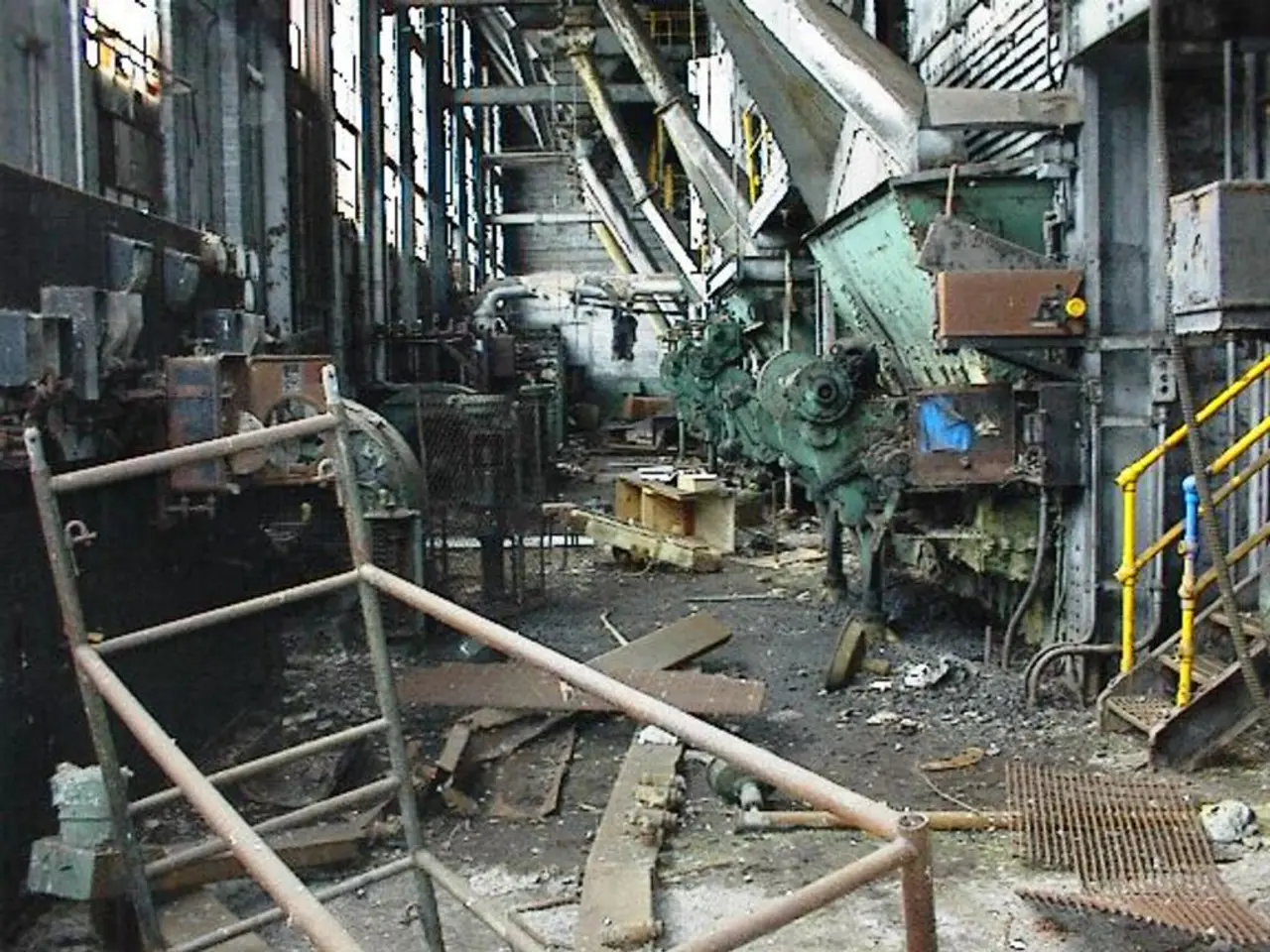Catastrophic blast at a U.S. Steel factory in Pennsylvania claims lives of two individuals, wounds ten more.
The U.S. Steel Clairton Coke Works plant in Pennsylvania experienced a devastating explosion on a recent morning, claiming the lives of two workers and injuring at least ten others. The incident occurred around 11 a.m. inside the reversing room for batteries 13 and 14 of the plant.
According to the health department, the plant has not detected levels of soot or sulfur dioxide above federal standards following the explosion. However, residents reported that the air felt acidic, smelled like rotten eggs, and was hard to breathe in the aftermath.
The explosion was preliminarily attributed to a failure of a gas valve during preparations for planned maintenance. As pressure built inside the valve, it failed, allowing coke oven gas—a highly flammable mixture containing methane, carbon monoxide, and carbon dioxide—to fill the area. The explosion was triggered when this gas encountered an ignition source.
U.S. Steel is conducting a thorough investigation, reviewing footage and interviewing employees to determine the exact cause and contributing factors. The company, along with state and federal agencies, is cooperating fully with investigators to analyze safety protocols and equipment conditions, particularly focusing on pressure valves and maintenance procedures.
The CEO and Pennsylvania Governor Josh Shapiro have both pledged transparency and a commitment to implementing needed safety improvements to protect workers and the surrounding communities. Federal investigators from the CSB will ultimately provide safety recommendations aimed at mitigating risks related to coke oven gas and maintenance operations at this and similar plants.
The Clairton plant, known for its long history in steel production, has a history of maintenance challenges and equipment corrosion issues affecting safety. These issues may also be addressed to prevent recurrence.
In 2019, the plant agreed to settle an air pollution lawsuit for $8.5 million, and five years later, it agreed to spend $19.5 million on equipment upgrades and $5 million on local clean air efforts and programs as part of settling a federal lawsuit.
Following the explosion, at least 10 workers were sent to hospitals, and the Allegheny County Health Department issued an advisory for residents within a mile of the U.S. Steel plant in Clairton. However, the advisory was later lifted. County officials warned residents to stay away from the scene to allow emergency workers to respond.
The explosion happened around 10:51 a.m. and was followed by several smaller blasts. The plant converts coal to coke, a key component in the steelmaking process. The process creates coke gas, a lethal mix of methane, carbon dioxide, and carbon monoxide.
U.S. Steel and Nippon Steel finalized a "historic partnership" in June, giving the U.S. government a say in some matters and coming a year and a half after the Japanese company first proposed its nearly $15-billion buyout of the American steelmaker. David Masur, executive director of PennEnvironment, called for a full, independent investigation into the causes of the latest explosion and a reevaluation of the plant's operation. Dr. Deborah Gentile, the medical director of Community Partners in Asthma Care, found increased asthma symptoms among patients after the fire.
In the wake of the fire, Allegheny County warned residents to limit outdoor activities. The explosion occurred at a sprawling facility in the Mon Valley, a region known for steel production for over a century. The plant is the largest coking operation in North America and is one of four major U.S. Steel plants in Pennsylvania.
[1] [News Source 1] [2] [News Source 2] [3] [News Source 3] [4] [News Source 4] [5] [News Source 5]
- Despite the air quality concerns raised by residents, the health department's tests did not reveal levels of soot or sulfur dioxide above federal standards in California following the steel plant explosion.
- The California government, along with federal agencies and the steel company, are working together to analyze safety protocols and equipment conditions, particularly focusing on the manufacturing industry and its potential impact on worker safety.
- In light of the explosion, there has been a call for transparency and safety improvements from both the steel company's CEO and the California Governor. Recommendations from the CSB will aim to mitigate risks related to the environment and maintenance operations at similar plants.
- The steel industry has a history of challenges and issues affecting safety, especially at plants like the one in California, where maintenance and equipment corrosion have been concerns. These issues need to be addressed to prevent similar incidents in the future.
- The steel mill in California, with its long history in manufacturing, has faced legal issues in the past, including an air pollution lawsuit. In 2019, the plant agreed to settle for $8.5 million and, more recently, agreed to spend $19.5 million on equipment upgrades and $5 million on local clean air initiatives.




